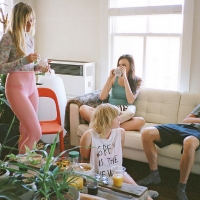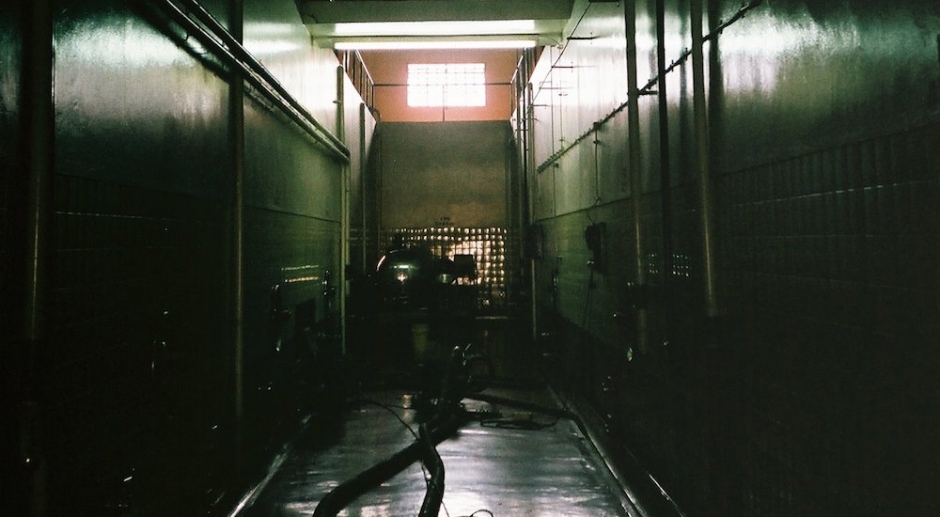 No Money Weekend June 12Your essential nation-wide cheapskates event guide.
No Money Weekend June 12Your essential nation-wide cheapskates event guide.

Date Night At The Medical Testing Centre Pt. 2
Please don't patent my veins.
Header photo and words by Simon Webster
Read part 1 HERE
After my initial screening, I had two weeks to kill before the trial. And being overly cautious by nature having copious amounts of free time on my hands, I decided to read through the waivers I’d just signed. The legal documents were endless. As far as unconventional ways to make a dollar go, getting paid to pee in a cup is probably more pleasant than getting paid to be peed on, but the paperwork blows. Craigslist wouldn’t ask for a million written consents.
As I read through it all, one sentence in particular caught my attention: ‘no remuneration will be given to you or your family in any event whatsoever’.
Or my family?
What scenario, other than my death, would render me incapable of compensation, and yet my family deserving of it? I thought this was a vitamin E trial? Well, I guess they have to be thorough, I told myself. But once my morbidity subsided, I thought about this remuneration clause more in its context: Big Pharma. I figured it could go one of two ways: a payout may potentially be compensatory in the event of injury, or it may be reward for a windfall. Much like an employee in a lab, I was signing over any claim I might have to any medical marvel we might uncover. If I am carrying the anti-cancer gene, they now own it.
By the morning of the trial, I was looking at things sideways. Suspicious. Shifty-eyed. The nurse strapped a tourniquet around my arm, and wiped the area with disinfectant.
"Oh, you’ve got some nice veins," she said.
"Please don’t patent my veins," I replied, all mock horror.
When she went to insert the cannula (basically a blood faucet that removes the need for needling every time blood is taken, which is, in this study, often) I began to think she probably flattered everyone with the vain vein compliment. After two tries, she asked another nurse to have a go. We swapped arms. For a minute it seemed like success, until the thing popped out mid-extraction, like one of those hosepipe bottle rockets (OK, slight exaggeration, but it was messy.)
When the third nurse finally managed to skewer my soggy, Maggi noodle vein, I felt safe that the intellectual property thereof was of no interest to anyone but me.
The trial was full of Brazilian guys – some of whom I’d met on the bus into town that morning. We all had our overnight bags packed, and little idea what to expect. When we got to the room and saw the walls lined with beds, there was a brief moment of excitement. It felt just like a hostel dorm, or that room in the old house in Paris where Madeline slept. But that feeling didn’t last long.
The morning was a rush of dosing and blood samples. Thanks to my rascal veins I fell right to the back of the queue, which meant my breakfast would be served some time in the afternoon. My bed was wheeled around the clinic as they tried to find a spot for me. At one point, whilst being drained of some more body ketchup in a hallway, a drop of me plummeted onto the beige linoleum floor (a feature of every hospital, in every country, everywhere). It landed and spread and looked like a sad little Japanese flag. When they finally found a dock for my bed, and the nurse went back to clean to blood spot, it was already gone.
By this point I was woozy. A mixture of hunger and fluid depletion meant maybe I wasn’t to trust my senses. Over the loudspeakers, cryptic messages were broadcast: "Code blue, block 52, by the rose bushes." The nurses laughed knowingly.
I got up and went for a walk. The common room was weird and I was feeling spacy. There was a scratchy pool table, and a plastic flat screen TV showing a test pattern. In an adjoining room, there were six leather massage chairs. They were empty but humming, set to vibrate. The décor seemed to be aiming at some mid-point between Nullabor Roadhouse and Singaporean Airport Executive Suite. It was the kind of room you’d expect to find vacant, but with cigarette smoke ribboning from full ashtrays next to empty chairs.
Breakfast was potato done in three colours, served at 3pm. The nurses all worked 12-hour shifts, and time stretched. I kept dozing in and out. Each time I woke, my skull was walloped with disinfectant and disorientation. When my eyes adjusted to the lights, I remembered where I was, and told myself, ‘I’m Louis Theroux, I’m Morgan Spurlock’. But I knew I was kidding myself. This wasn’t risky or adventurous, it was just uncomfortable and boring. $450 is not danger money, it’s ‘no one else wants to do it’ money. And I was starting to see why.
The next morning, over burnt toast and Nutri-Grain, my fellow test subjects spoke about various upcoming trials like they were El Dorado. One went for 30 days and paid $7,000. I racked my brain, trying to think of another way I could save that sorta dough in a month, but came up short. And yet, given the chance, I don’t think I’d do it. It’s a 30-day sentence, essentially, during which walks outside are regulated, visiting time is scarce, and the food is, look, it’s just not worth it. It seems like it is, but it isn’t. The equation relies heavily on desperation and a lack of other options. The price is boredom, and the overbearing awareness that you’ve given up your autonomy for a set period of time, which just stretches on ahead of you. I told myself, 'No, this’ll just be a once off', as they fished around my forearm looking for a vein they hadn’t perforated yet (my fifth cannula of the trial).
But not 30 minutes later, as soon as I’d stepped out into the sunshine, as soon as I was finally done, I took stock: $450 in the pocket. Not a bad night’s work. Maybe, just maybe, when they email me in two weeks’ time with info on the next round of trials, I might just respond in the affirmative.
 No Money Weekend June 12Your essential nation-wide cheapskates event guide.
No Money Weekend June 12Your essential nation-wide cheapskates event guide.
 It's E3 Time!Gaming's biggest event is on this week, here's what we're looking forward to.
It's E3 Time!Gaming's biggest event is on this week, here's what we're looking forward to.